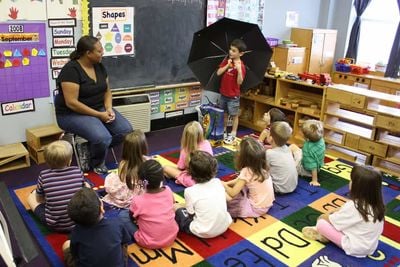The 3 Most Popular ESL Games That Work in Every Classroom

Games and fun activities are a vital part of teaching English as a foreign language. Whether you're teaching adults or children, games will liven up your lesson and ensure that your students will leave the classroom wanting more.
Table of Contents
2. Call My Bluff / Two Truths and A Lie
Now it's your turn to get TEFL certified!
Games can be used to warm up the class before your lesson begins, during the lesson to give students a break when you're tackling a tough subject, or at the end of class when you have a few minutes left to kill. There are literally hundreds, probably thousands, of games that you can play with your students. EFL games are used to test vocabulary, practice conversing, learn tenses - the list is endless.
Also read: The 5 Best TEFL Games For Adult Students
This list of some basic classic ESL games every teacher should know will help get you started and feeling prepared. Having these up your sleeve before stepping into the classroom will ensure your lessons run smoothly, and, should things get a little out of control, you'll be able to pull back the attention of the class in no time.
This post was written by our TEFL certification graduate Yutung Y.
1. Board Race
There isn't an EFL teacher I know who doesn't use this game in the classroom. Board Race is a fun game that is used for revising vocabulary, whether it be words from the lesson you've just taught or words from a lesson you taught last week. It can also be used at the start of the class to get students active. It is a great way of testing what your students already know about the subject you're about to teach.
Why use it? Revising vocabulary; grammarWho it's best for: Appropriate for all levels and ages
How to play:
This is best played with 6 students or more - the more, the better. I've used it in classes ranging from 7-25 years of age and it's worked well in all age groups. Here's a step by step explanation:
- Split the class into two teams and give each team a colored marker.
- If you have a very large class, it may be better to split the students into teams of 3 or 4.
- Draw a line down the middle of the board and write a topic at the top.
- The students must then write as many words as you require related to the topic in the form of a relay race.
- Each team wins one point for each correct word. Any words that are unreadable or misspelled are not counted.

2. Call My Bluff / Two Truths and A Lie
Call My Bluff is a fun game which is perfect at the start of term as a 'getting to know you' kind of game. It is also a brilliant ice breaker between students if you teach classes who do not know one another -- and especially essential if you are teaching a small class size.
The game is excellent for practicing speaking skills, though make sure you save a time for after the game to comment on any mistakes students may have made during the game. (I generally like to reserve this for after the game, so you don't disrupt their fluency by correcting them as they speak).
With older groups you can have some real fun and you might be surprised what you'll learn about some of your students when playing this particular EFL game.
Why use it? Icebreaker; Speaking skillsWho it's best for: Appropriate for all levels and ages but best with older groups
How to play:
- Write 3 statements about yourself on the board, two of which should be lies and one which should be true.
- Allow your students to ask you questions about each statement and then guess which one is the truth. You might want to practice your poker face before starting this game!
- If they guess correctly then they win.
- Extension: Give students time to write their own two truths and one lie.
- Pair them up and have them play again, this time with their list, with their new partner. If you want to really extend the game and give students even more time to practice their speaking/listening skills, rotate partners every five minutes.
- Bring the whole class back together and have students announce one new thing they learned about another student as a recap.

3. Simon Says
This is an excellent game for young learners. Whether you're waking them up on a Monday morning or sending them home on a Friday afternoon, this one is bound to get them excited and wanting more. The only danger I have found with this game is that students never want to stop playing it.
Why use it? Listening comprehension; Vocabulary; Warming up/winding down classWho it's best for: Young learners
How to Play:
- Stand in front of the class (you are Simon for the duration of this game).
- Do an action and say Simon Says [action]. The students must copy what you do.
- Repeat this process choosing different actions - you can be as silly as you like and the sillier you are the more the children will love you for it.
- Then do an action but this time say only the action and omit 'Simon Says'. Whoever does the action this time is out and must sit down.
- The winner is the last student standing.
- To make it harder, speed up the actions. Reward children for good behavior by allowing them to play the part of Simon.

Listen to this blog post
Now it's your turn to get TEFL certified!
Apply now & get certified to teach english abroad!
Speak with an ITTT advisor today to put together your personal plan for teaching English abroad!
Send us an email or call us toll-free at 1-800-490-0531 to speak with an ITTT advisor today.
Related Articles:
- The Top 5 Places to Teach English in Japan | ITTT | TEFL Blog
- 10 Questions You Need to Ask Before Enrolling In a TEFL Course
- Step-By-Step Guide To Legally Teaching English in South Korea
- Online or In-Class - Which TEFL Course Should You Take?
- Teaching English Abroad: What's Next? - How To Advance In Your EFL Career
- Teaching English In China - The Salary and Budget Guide



